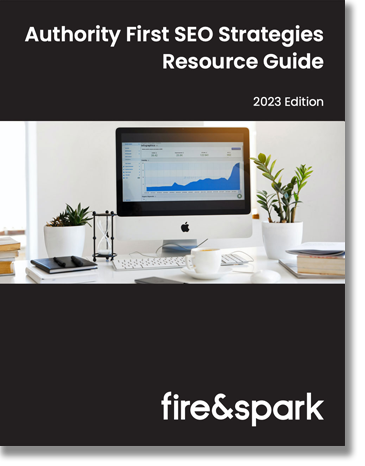PPC does not directly affect SEO. PPC rankings and SEO rankings are evaluated using completely different and independent algorithms. Having said that, the outcomes of a PPC campaign may indirectly affect SEO.
Here are 5 ways PPC can affect SEO:
1. CTR Increase with Search Dominance
With PPC, you can bid a page from your website to show up on search results complementary to another, different page that’s already ranking on that SERP organically. That way, you’re giving users two chances to click through, and two options to click on, without risking any keyword cannibalization issues.
Additionally, a research study by Google conducted in 2011 showed that click-through rates were instantaneously and significantly impacted by starting and stopping PPC campaigns.
Although SERPs are now much more contentful than they were back in 2011 and users are more likely to pay attention to different rich results and search features – like image carousels, FAQ dropdowns, and reviews and ratings more than search ads – ads are still the only way to get repeated exposure on a single SERP if your website is currently not ranking for any rich search features on that SERP.
2. Evaluating Search Intent
Both PPC and SEO rely on click-throughs for maintaining performance. SEO rankings, however, are harder to achieve. Before going all in to rank for a keyword on organic search, you can test out whether users searching that keyword is interested in the content you’re offering and if your messaging is enticing.
3. Brand Awareness Increase
PPC campaigns can increase brand awareness, which can, in turn, result in more branded searches, and then also website traffic from those subsequent branded searches, signaling brand authority and relevance to Google. Think of it as reversed remarketing.
 Learn More about Authority Building in Fire&Spark’s Authority First SEO Strategies Resource Guide
Learn More about Authority Building in Fire&Spark’s Authority First SEO Strategies Resource Guide
4. Inform CRO & Messaging Efforts
One way Google evaluates the value of a website is colloquially known as “long-clicks” — people clicking through to your website and not going back to search results because they found what they’re looking for. The other is CTR which is important for both SEO rankings and AdRank – users clicking through to your website when they see it on SERPs, or when they see your Ad.
Use learnings from one medium to inform the other – is your PPC ad working? Incorporate your messaging into the metadata of your ranking landing page. Does your SEO landing page have a great conversion rate? Incorporate your strategy into your PPC landing pages.
5. Research Competitive Advantage
Unlike other items on this list, this tactic involves analyzing – not running – PPC ads. Tools like Ahrefs or SEMrush allow you to see keywords your competitors are bidding for on SERPs. A portion of these keywords will likely be queries they want to rank organically for. Use this knowledge to target these keywords before they do, and gain the advantage.
Aside from keyword targeting, analyzing paid ads from your competitors gives you insight into what they’re offering, and how they’re phrasing that offering. While it won’t let you know whether these offers and messaging are actually bringing in results or not, it can help spark some ideas you perhaps wouldn’t have thought of otherwise.

